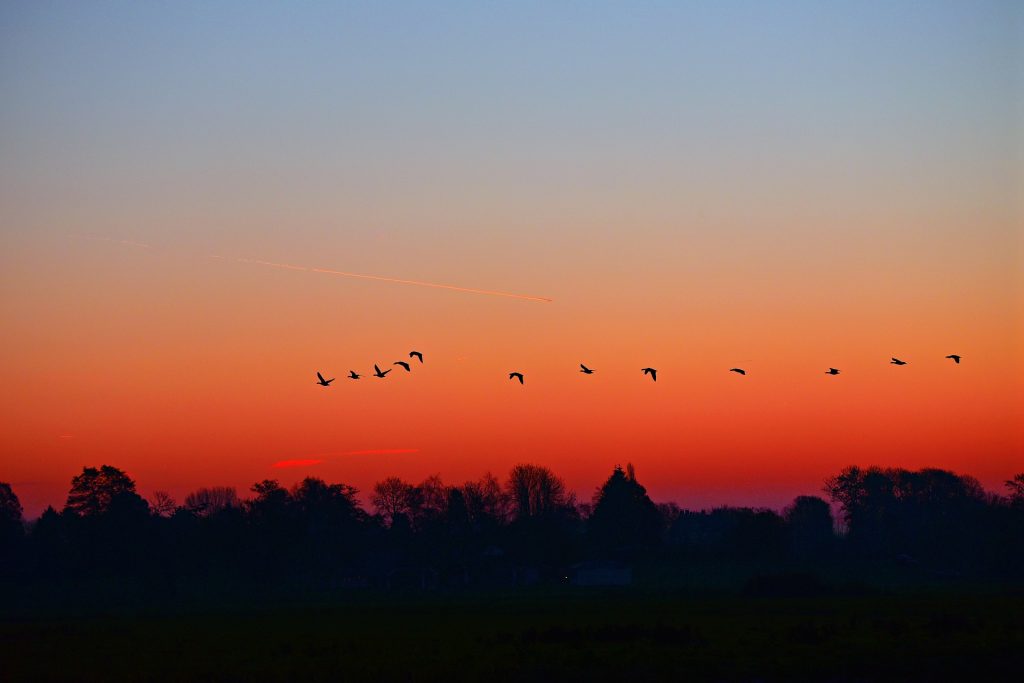How does one describe weather in Bukusu? Today we learn Lubukusu words for important weather events.
A synopsis on the cultural importance weather in Bukusu culture
Seasons and time of day are more common ‘reference’ points in Bukusu culture. Notably, these markers of time are of value during naming ceremonies and rituals; and in traditions and customs surrounding death. The cultural value of weather in Bukusu culture is wide ranging. To Mbukusu, weather impacts the entire spectrum of life and living: from diet to signifying important, rare, cultural events.
Namufweli
na-mu-fweli
Refers to mist or fog.
Engwe yasalile
This is when the sun shines with a ring around it. The scientific explanation of this phenomenon is that the halo arises from the reflection and refraction of sun rays by ice crystals in very very high, very very thin clouds.
For a religious take on this curious phenomenon, kindly check out this blog on the Biblical meaning of a halo around the sun.
However, to Mbukusu, this unusual weather event is symbolic of a rare event with implications in the ‘other’ world. Literally, ‘engwe yasalile‘ means that the leopard has given birth. The leopard in an important totem among the Luhya. We will be expounding on this cultural significance of the leopard in upcoming posts. Thus, keep it here. Meanwhile, explore our growing library of Bukusu proverbs and sayings.
Khufunyela
Cloudy day
Kumuumu
A sunny day. The sun is revered Mbukusu as evident in this saying: Kumuumu kwakila sisuche sielusia enjusi; translated as: Too much sunshine made the fox mate the mongoose. Haha haha.
Efula
Rain. For a story of my good friend the rain and I, and the explanation from Bukusu culture that my grandma recently offered after another life event got washed out, read this story from my childhood on efula.
Kamaarara
Kamaarara is how you describe weather in Bukusu where hail stones feature. The damage occasioned by hail stones on vegetative cover often ushered a transient period where beloved traditional vegetables were in short supply.
Further, if hail stones came when the bean crop in the fields had flowered, it meant that there would be loss of flowers. It is the flowers which transform to become the fruit. What this means is that, with little harvest to look forward to, most of the bean crop would be consumed as the least liked traditional vegetable makhalaba.
Efula khuyita
Whenever clouds assembled in preparation for heavy rains is described as efula khuyita.
Eyita ebiranga
But it is not always that when clouds gather, there will be rain. Sometimes, the rain ‘passes’. The bukusu have a saying to this regard. The saying is ‘eyita ebiranga’. Translated, it means: heavy cloud assembly does not necessarily lead to heavy downpour. This saying is usually used to caution that furious anger may not always lead to dire consequences.
Learn Lubukusu with us. Discover more Bukusu words concerning time, day and weather
Bukusu language or Lubukusu is the tongue of Babukusu, the largest of the 18 houses of mulembe. Learn how to speak Bukusu language through our free lessons in Bukusu language; our stories on Bukusu culture that harness the richness of Lubukusu in their narrative; our continuous search for the meaning of different Bukusu proverbs and sayings; and if your Lubukusu is already good enough, sharpen and challenge yourself with our new blog sibukusu that covers everything Bukusu in the purest Lubukusu.
Get started with our mega post: 130+ common Bukusu words and phrases their meaning, translation and pronunciation.

Learn how to say the time of day in Bukusu
How does one say time of day in Bukusu? What’s akoloba, silo, subuyi and kumuusi? Join us as we learn Bukusu words for morning, day time, evening and night.

Today tomorrow yesterday in Bukusu
How does one ‘order days’ in relation to each other in Bukusu? Today we learn how to say: today tomorrow yesterday in Bukusu; plus more Lubukusu words for ‘ordering days’.

Days of week in Bukusu
Mulembe swa! Learn how to say days of the week in Bukusu in this free beginners Lubukusu lesson.

